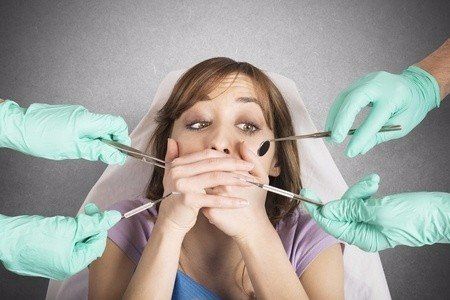Could Dental Fear be Genetic?
One of the most common fears is being
afraid of the dentist. A lot of people dread going to the dentist and put off treatment
for years. Some may experience dental
anxiety, a sense of uneasiness, or dental phobia, an intense fear or sense of
dread before visiting the dentist.
Researchers from West Virginia University,
Cameron Randall and Daniel McNeil, PhD, have discovered that this fear can be
influenced by genetics. Their study was published in the journal Community Dentistry and Oral Epidemiology
,
and the purpose of their research was to find additional evidence regarding
genetic disposition that causes dental fear and a fear of pain.
The researchers
used data from a family-based study from the Center for Oral Health Research in
Appalachia. The data consisted of 732 families and 1,370 participants between
the ages of 11-74. Each person was given a 20-question survey to measure their
psychological response to dental care and a short questionnaire about their
fear of pain.
Women in the study reported higher levels of
dental fear and pain, with age factoring in to dental fear as well. From this
group of subjects, a fear of pain was estimated to be 35 percent passed down
through generations while dental fear was 30 percent genetically influenced.
The researchers did note that a shared environment could have acted as a
variable in the estimates.
How Does That Affect You?
The fear of pain
or dental treatment may range from mild to severe. A few signs indicating you
may need help overcoming your fear include feeling tense the night before a
dental exam, becoming extremely nervous in the waiting room, feeling
overwhelmed with emotion and anxiety, becoming physically ill thinking about
the dentist, or having trouble breathing during the appointment.
Along with genetics, people develop
anxieties and phobias for different reasons, but here are a few common themes
behind patient fear:
Pain
The fear of pain is most common in adults
24 years and older. This could be from an uncomfortable experience as a kid and
the lack of advanced, pain-free technology in the past.
Lack of Control
Anxiety triggered by a feeling of
helplessness is also common. Most fears stem from people feeling as if they
have no control. Having to sit still in the dentist chair can increase
discomfort and not being able to see what’s being done can be uncomfortable for
them as well.
Embarrassment
If people are self-conscious about how
their teeth look, they may feel more vulnerable going to the dentist. Having someone,
even a professional, look inside their mouth may cause a certain uneasiness
during dental exams.
People who are unusually tense have a
lower threshold for pain, and avoiding treatment can make matters worse and even
cause dental visits to be more uncomfortable in the process. Fortunately, over time,
these fears can be treated, and dentists are often more than willing to help
someone through these fears.
Copyright: alphaspirit / 123RF Stock Photo











